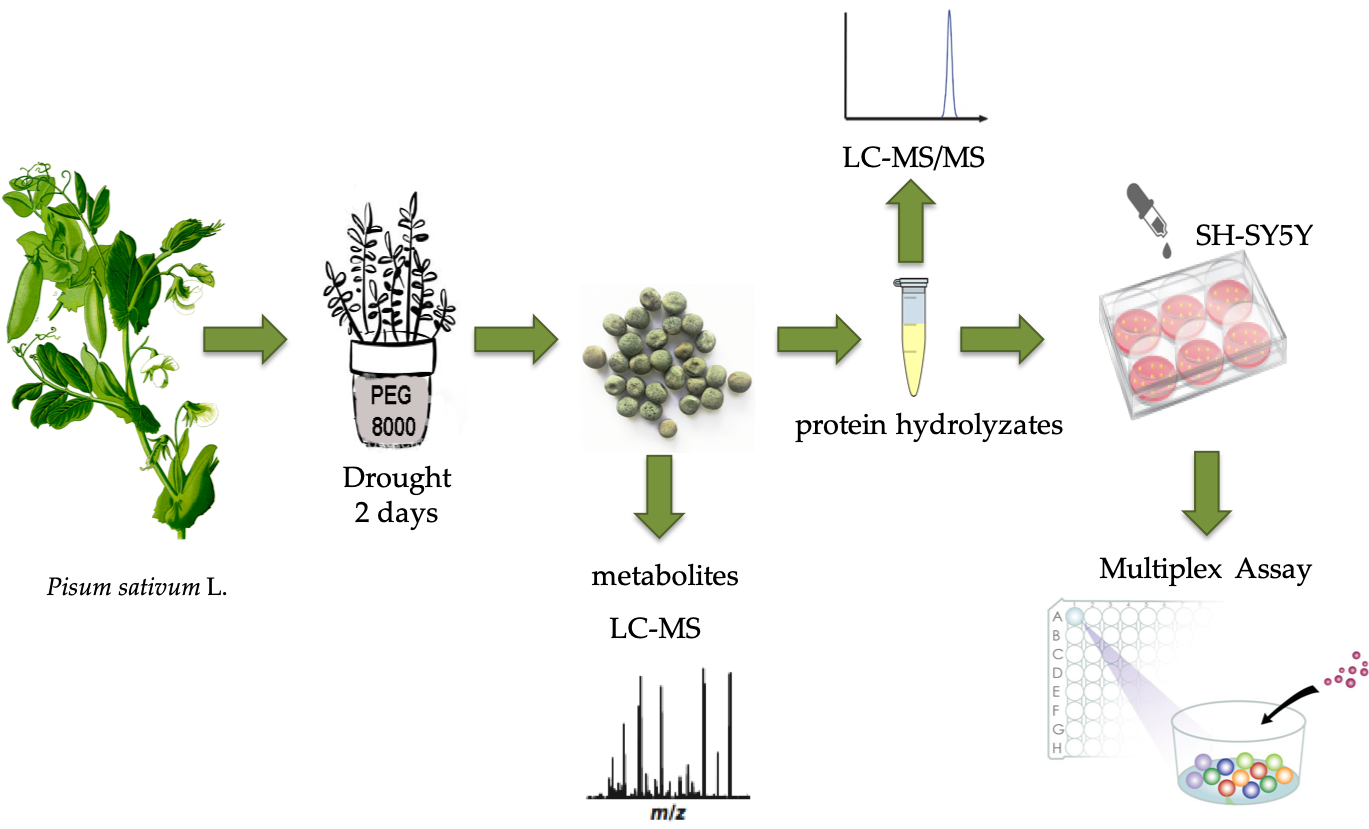Protein glycation is usually referred to as an array of non-enzymatic post-translational modifications, formed by reducing sugars and carbonyl products of their degradation. Resulting advanced glycation end products (AGEs) represent a heterogeneous group of covalent adducts, known for their pro-inflammatory effects in mammals, and impacting on pathogenesis of metabolic diseases and ageing. In plants, AGEs are the markers of tissue ageing and response to environmental stressors, the most prominent of which is drought. Although water deficit enhances protein glycation in leaves, its effect on seed glycation profiles is still unknown. Moreover, the effect of drought on biological activities of seed protein in mammalian systems is still unstudied in respect of glycation. Therefore, here we address the effects of a short-term drought on the patterns of seed protein-bound AGEs and accompanying alterations in pro-inflammatory properties of seed protein in the context of seed metabolome dynamics. A short-term drought, simulated as polyethylene glycol-induced osmotic stress and applied at the stage of seed filling, resulted in dramatic suppression of primary seed metabolism, although secondary metabolome was minimally affected. This was accompanied with significant suppression of NF-kB activation in human SH-SY5Y neuroblastoma cells after a treatment with protein hydrolyzates, isolated from the mature seeds of drought-treated plants. This effect could not be attributed to formation of known AGEs. Most likely, the prospective anti-inflammatory effect of short-term drought is related to antioxidant effect of unknown secondary metabolite protein adducts, or down-regulation of unknown plant-specific AGEs due to suppression of energy metabolism during seed filling.

